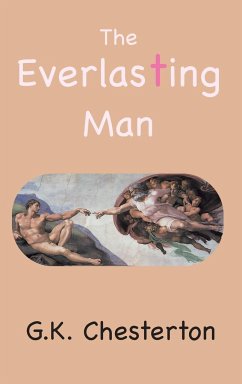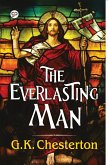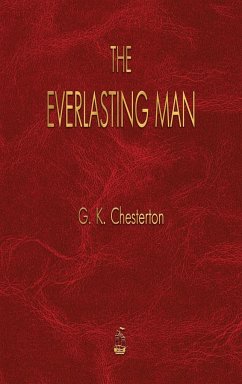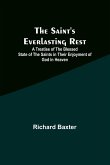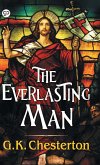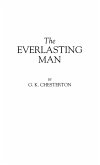According to the evolutionary outlines of history proposed by Wells and others, humankind is simply another animal, and Jesus was a remarkable human being and nothing more. Chesterton's thesis, as expressed in Part I of the book ('On the Creature Called Man'), is that if a man is really and dispassionately viewed as another animal, one must conclude that he is a bizarrely unusual animal. C. S. Lewis credited The Everlasting Man with "baptizing" his intellect, much as George MacDonald's writings had baptized his imagination to make him more than half-converted well before he could bring himself to Christianity. In a 1950 letter to Sheldon Vanauken, Lewis calls the book "the best popular apologetic I know." In 1947, he wrote to Rhonda Bodle: "the [very] best popular defense of the full Christian position I know is G. K. Chesterton's The Everlasting Man." The book was also cited by The Christian Century in a list of 10 books that "most shaped [Lewis'] vocational attitude and philosophy of life." Chesterton wrote around 80 books, several hundred poems, some 200 short stories, 4,000 essays (mostly newspaper columns), and several plays. He was a literary and social critic, historian, playwright, novelist, Catholic theologian and apologist, debater, and mystery writer.
Hinweis: Dieser Artikel kann nur an eine deutsche Lieferadresse ausgeliefert werden.
Hinweis: Dieser Artikel kann nur an eine deutsche Lieferadresse ausgeliefert werden.

